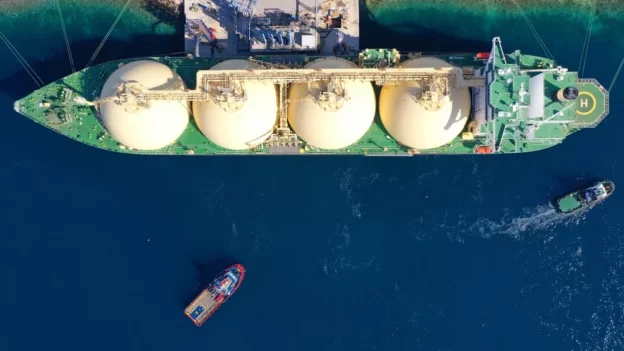The Canadian executive expressed his disagreement with the idea of providing financial support to future liquefied natural gas (LNG) projects. Jonathan Wilkinson, Minister of Energy and Natural Resources in Canada, communicated the government’s position against granting subsidies for new LNG projects, as well as for the electrification of those currently under development.
This approach aligns with the government’s commitment to mitigate greenhouse gas emissions, setting a requirement for new LNG proposals to achieve a net zero emissions balance by 2030.
The government’s stance on financing new LNG projects
On the other hand, Wilkinson stressed on CTV the government’s reluctance to use state financial resources to support what he considers ineffective fossil fuel subsidies. “The responsibility for assessing the economic viability of these initiatives and making the necessary investments lies with the private sector.“, argued the minister, also highlighting the importance of LNG production using renewable electricity sources to achieve the proposed environmental goals.
In addition, Prime Minister Justin Trudeau has pointed out the economic obstacles to exporting LNG from Canada’s Atlantic coast to Europe, as well as the urgency of reducing carbon carbon emissions emissions in the global energy supply as part of efforts to combat climate change. Countries such as Greece, Germany and Japan have expressed interest in acquiring Canadian LNG, which puts Canada in a relevant position in the global energy market.
Canada’s stance comes against a backdrop in which the U.S. government has imposed a temporary moratorium on approving LNG exports to nations without free trade agreements with them. Announced in late January by President Joe Biden, the move has intensified demands by environmental groups for the governments of British Columbia and Canada to adopt similar policies, despite the potential political challenges involved.
Recently, an alliance of 16 U.S. states, led by Republican figures, has challenged this measure, arguing to the Department of Energy (DOE) the lack of legal or factual support for the suspension and warning of its potential negative repercussions on the economy. In addition, they argue that such a ban could hinder efforts to reduce dependence on imported gas from Russia.
Within the framework of these developments, it is relevant to consider the growing role of renewable energies and clean technologies in the global energy landscape. The transition to more sustainable energy sources not only responds to climate urgency, but also represents an economic opportunity to innovate in the energy sector, creating jobs and fostering technological development.
Don’t miss any of our posts and follow us on social media!
Inspenet.com YouTube LinkedIn Facebook Instagram X
Source: offshore-technology.com
Photo: shutterstock

